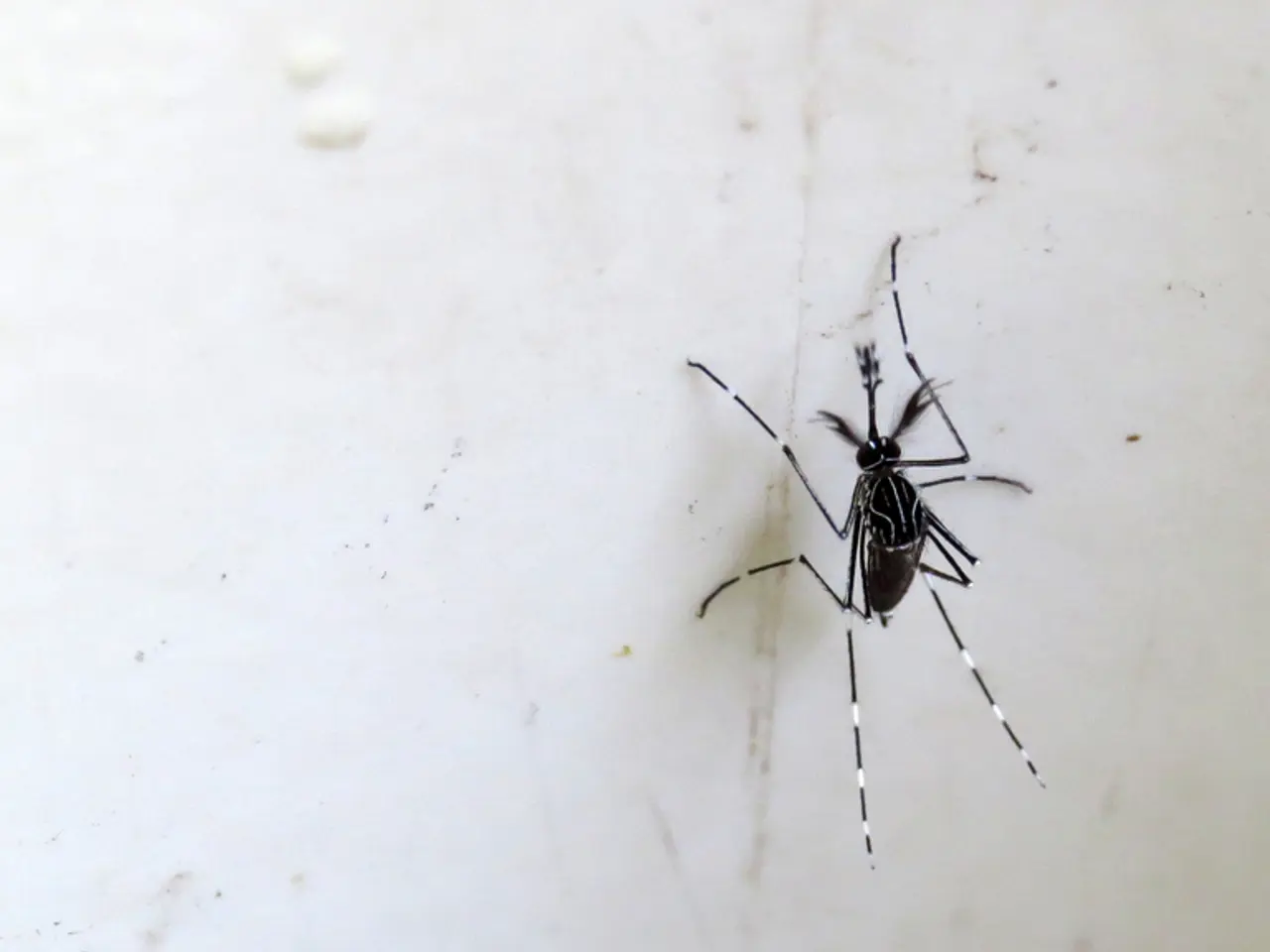Increase in mosquito population fuels the dispersal of tropical illnesses across Europe
In the picturesque region of Oristano, Italy, a recent case of West Nile virus has raised concerns among locals and tourists alike. The patient, a 71-year-old man, presented at the hospital with symptoms including high fever, confusion, neurological symptoms, and encephalitis. West Nile virus was detected in the patient, marking the 15th case in the region this year.
The disease is not transmitted from human to human but only through infected mosquitoes. Specifically, the tiger mosquito, which is established in 16 countries in Europe and likely to spread further, is believed to be the primary carrier of the virus in the region.
Older individuals with conditions such as diabetes, heart or respiratory trouble, or obesity are more susceptible to severe West Nile illness due to weakened immune responses. This is a concern in Oristano, as the community still bears the scars of the Covid-19 pandemic and is understandably wary of another health crisis.
The efforts to reduce the outbreak of West Nile virus disease in the Oristano region are led by the Local Health Authority (ASL) 5 of Oristano, specifically coordinated by the Department of Health and Prevention under the direction of Dr. Maria Valentina Marras. Joint action plans also involve collaboration with the Province, the Zooprophylactic Institute, the Forestry Department, and other stakeholders for mosquito control and prevention.
Dr. Marras and her team are working tirelessly to contain the spread of the virus, particularly during the hot and humid summer in the region. They have been distributing information brochures explaining how West Nile virus spreads and how to prevent it. Some of the recommended preventative measures include covering all windows with mosquito screens, never leaving out bowls of water for pets overnight, and avoiding dark clothing.
The spread of the virus is proving difficult to contain, not just in Oristano but across various Mediterranean countries this summer. Italy has detected 430 locally-transmitted cases of West Nile virus and 27 deaths in 2025. France has reported 227 cases of Chikungunya virus this summer across 30 clusters.
The European Centre for Disease Prevention and Control considers this a "new normal", attributing it to climate change and increased international travel. English-language information campaigns target tourists in the region due to its tourist attraction. However, the community in Oristano remains apprehensive, remembering too well the impact of the Covid-19 pandemic.
As the battle against West Nile virus continues, it serves as a reminder for everyone to stay vigilant and informed, and to take the necessary precautions to protect themselves and their loved ones from mosquito-borne diseases.
Read also:
- Peptide YY (PYY): Exploring its Role in Appetite Suppression, Intestinal Health, and Cognitive Links
- Toddler Health: Rotavirus Signs, Origins, and Potential Complications
- Digestive issues and heart discomfort: Root causes and associated health conditions
- House Infernos: Deadly Hazards Surpassing the Flames








